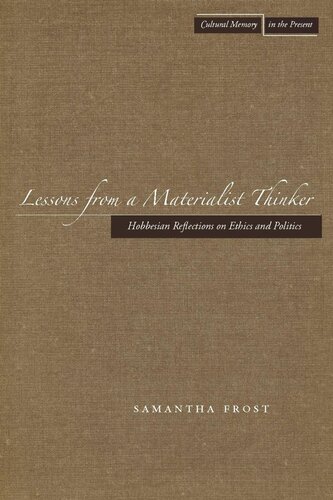

Most ebook files are in PDF format, so you can easily read them using various software such as Foxit Reader or directly on the Google Chrome browser.
Some ebook files are released by publishers in other formats such as .awz, .mobi, .epub, .fb2, etc. You may need to install specific software to read these formats on mobile/PC, such as Calibre.
Please read the tutorial at this link: https://ebookbell.com/faq
We offer FREE conversion to the popular formats you request; however, this may take some time. Therefore, right after payment, please email us, and we will try to provide the service as quickly as possible.
For some exceptional file formats or broken links (if any), please refrain from opening any disputes. Instead, email us first, and we will try to assist within a maximum of 6 hours.
EbookBell Team

5.0
48 reviewsThomas Hobbes is an iconic figure who serves as an easy reference for pundits commenting on the brutality of war as well as for critics of a distinctly modern individualism in which calculating and rapacious self-interest is the cause of the violence, destruction, and exploitation endemic to the contemporary world. Frost's reading of Hobbes's philosophy shows us that underlying such visions of self and politics is another iconic figure: that of the Cartesian subject. What gives the iconic Hobbes his hardcore individualism and its corollary accounts of instrumentalism, conflict, and absolutism is a Cartesian rendering of the self as split into mind and body. Carefully elaborating Hobbes's materialist ontology, Lessons from a Materialist Thinker challenges both our implicit Cartesian assumptions about the self and the commonplace Hobbes that so readily figures violence in our political imagination. Through his materialism, Hobbes presents an alternative modern account of self-consciousness, reason, agency, power, freedom, and responsibility. In doing so, he shows that our fundamental intersubjectivity and interdependence require that we pursue peace above all else.